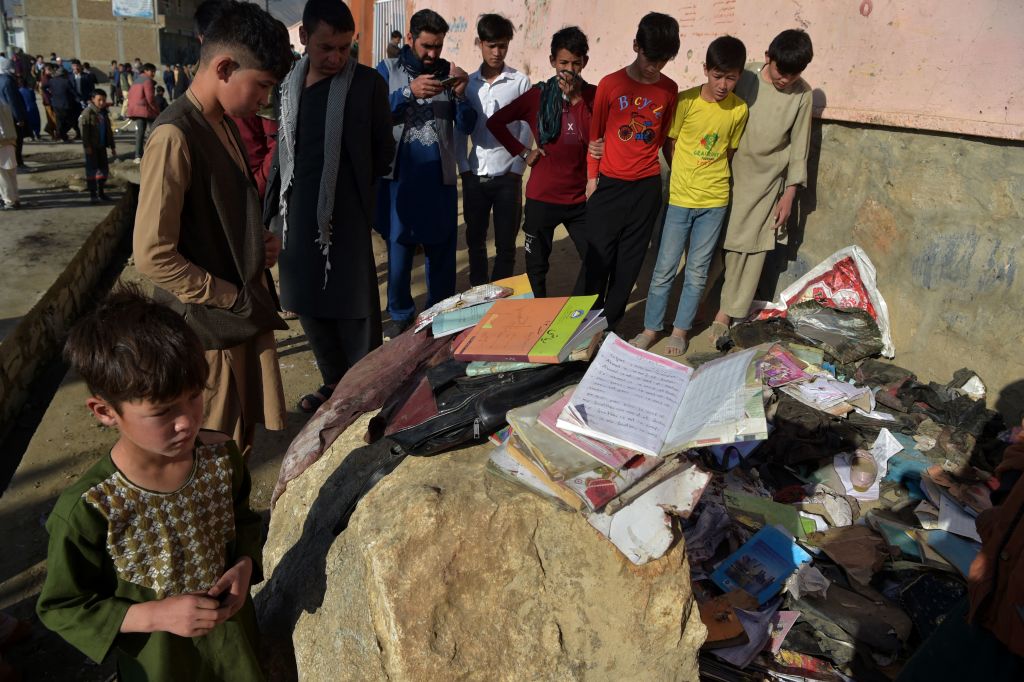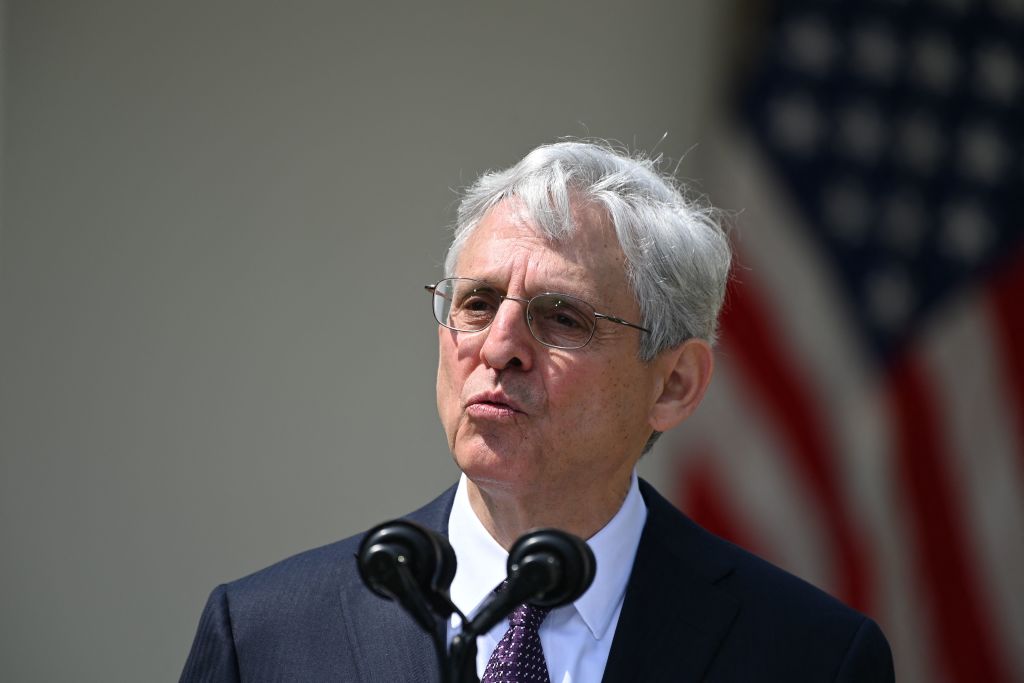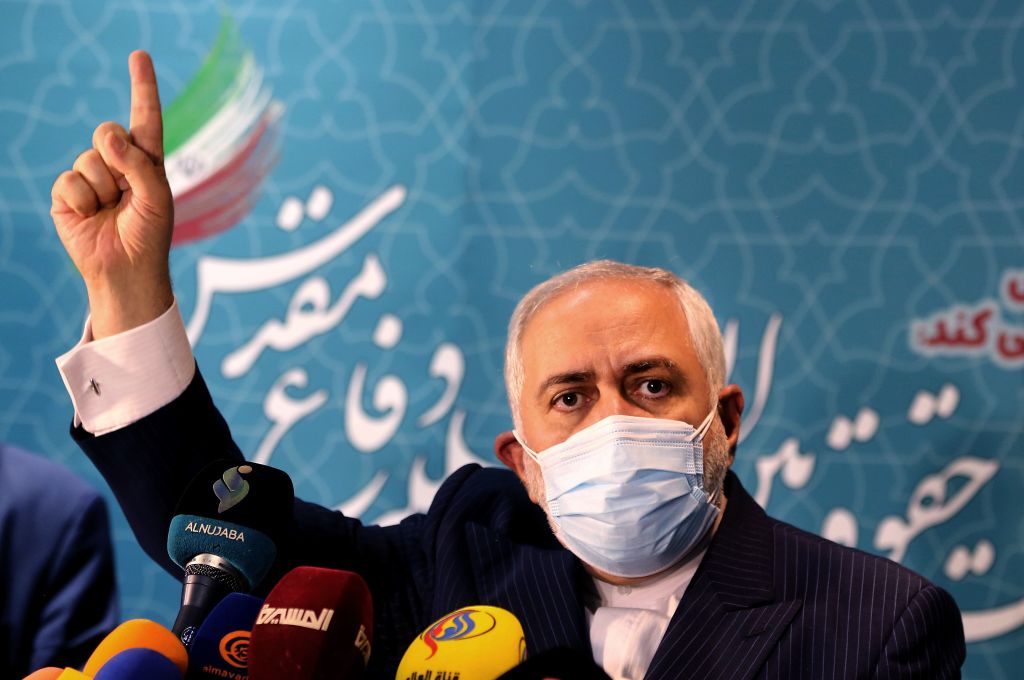How ISIS gets its hostages
Many terrorist groups buy and trade kidnapped foreigners, but ISIS appears to operate independently

A free daily email with the biggest news stories of the day – and the best features from TheWeek.com
You are now subscribed
Your newsletter sign-up was successful

Recent accusations that a U.S.-backed rebel group in Syria helped facilitate the capture of an American journalist that ISIS later beheaded have drawn attention to a little-discussed phenomenon: the hostage black market.
Militant groups the world over have used kidnap for ransom as a fundraising tactic — Al Qaeda has raised at least $125 million since 2008 — but the larger organizations that ultimately do the negotiating often have help from smaller fish in the initial stages of a capture. Since 9/11, Al Qaeda has perfected a protocol of enlisting local gangs to do the actual kidnappings as a form of risk management. "To minimize the risk to their fighters, the terror affiliates have outsourced the seizing of hostages to criminal groups who work on commission," The New York Times reported earlier this year in a major investigation into kidnapping for ransom.
"Certainly AQAP in Yemen did this," says Letta Tayler of Human Rights Watch, referring to Al Qaeda in the Arabian Peninsula. "But in those cases, tribal kidnapping rings — criminal gangs, not really terrorists — would kidnap someone and sell him/her to AQAP." Under those circumstances, according to Tayler, the group or individuals who initially do the kidnapping may have little in common with members of Al Qaeda, and were just doing it for the money. The trade is essentially an economy of scale: Al Qaeda has the institutional knowledge and infrastructure to detain and move hostages, as well as negotiate for their ransom, that small groups don't have.
The Week
Escape your echo chamber. Get the facts behind the news, plus analysis from multiple perspectives.

Sign up for The Week's Free Newsletters
From our morning news briefing to a weekly Good News Newsletter, get the best of The Week delivered directly to your inbox.
From our morning news briefing to a weekly Good News Newsletter, get the best of The Week delivered directly to your inbox.
According to many observers, ISIS functions differently — at least least for now. "Almost all of the foreign hostages held by IS were kidnapped directly by them," says Peter Bouckaert, also of Human Rights Watch, using the truncated acronym for the group.
But one high-profile kidnapping case involving a U.S. journalist has raised questions about whether ISIS had another form of assistance. ISIS kidnapped Steven Sotloff in August 2013, and a member of the group later killed him in a gruesome video that was made public shortly after a similar video surfaced showing the murder of another U.S. journalist, James Foley. A friend of Sotloff's and spokesman for the family, Barak Barfi, recently told The Daily Beast that a U.S.-supported group called Northern Storm tipped off ISIS to Sotloff's location for a fee that Barfi estimates was between $25,000 and $50,000. Barfi, citing sources on the ground, had previously claimed that Sotloff had been "sold at the border," which led some media outlets to incorrectly report that the U.S.-backed rebels had actually kidnapped Sotloff.
Secretary of State John Kerry, anonymous administration officials and Senator John McCain, who met last year with members of Northern Storm, have all denied Barfi's version of events. (Barfi declined to comment for this story, and a State Department spokesperson declined to comment on the record.)
Mouaz Moustafa, the executive director of the Syrian Emergency Task Force — a pro-intervention lobbying group with close ties to the U.S. government — also disputes Barfi's narrative. "The fact is Northern Storm are bitter enemies of ISIS," Moustafa tells Vocativ. "If you logically think about it, ISIS would be giving a big amount of money to their bitter enemies to get one guy — and they don't even have that sort of communication."
A free daily email with the biggest news stories of the day – and the best features from TheWeek.com
More generally, Moustafa is "very skeptical" that ISIS buys hostages from low-level groups the way Al Qaeda does. "ISIS fights against all kinds of groups, and usually there isn't the kind of mutual coordination where some of these deals might take place," he says. Rather, he explains, ISIS deploys clandestine "intelligence teams, and those are people that are in different [rebel-held] locations who report back to [other members] and help facilitate the kidnappings of journalists and others."
But as alliances in Iraq and Syria are formed and broken, which groups are willing to trade hostages to whom can change drastically. ISIS and the Al Qaeda affiliate in Syria, Jabhat al-Nusra (the Nusra Front), dissolved any association in February 2014, which likely ended any potential for prisoner trading. "But evidence suggests there was some transference of hostages prior to the split between al-Nusra and ISIS," says Daveed Gartenstein-Ross, of the generally hawkish Foundation for the Defense of Democracies. And recent reports show the two groups may have begun cooperating again, following the U.S. bombing of Nusra militants.
Complicating matters further, says HRW's Bouckaert, is that "there have been incidents of hostages being traded up or bought by other groups, including Jabhat al-Nusra." If that account is accurate, it suggests that Al Qaeda's representative in Syria is following in the footsteps of AQAP and other branches of the organization.
Bouckaert adds that ISIS would likely jump at the chance to buy foreign hostages, either from Nusra or less well-known groups. "Given the importance IS places on holding and ransoming foreign hostages, I am sure they would pay for foreign hostages held by other groups if the opportunity presented itself," he says in an email. "With ransoms going as high as $10 million USD, the financial incentive to kidnap foreigners for ransom is very high indeed."
Public estimates of how much Western countries and organizations may have paid for the approximately 15 Western hostages ISIS released this year are scarce, but some reports claimed France paid ISIS $18 million for the release of four hostages. Germany was also rumored to have paid an undisclosed amount to ISIS for the return of a German national. Both countries have denied paying the ransom money.
ISIS reportedly demanded $132 million for the release of U.S. journalist Jim Foley, which the U.S. refused to pay, following its longstanding no-concessions policy. The group later murdered Foley.
Yet for all the focus on Westerners, the vast majority of people held hostage by ISIS are local Syrians, Iraqis and others from the region. "A much broader and more extensive kidnapping and extortion practice targets wealthy, and not so wealthy, Syrians and Iraqis," says Bouckaert, "and is one of the main funding sources for IS and other groups in Syria and Iraq."
This article originally appeared at Vocativ.com: How ISIS gets its hostages
More from Vocativ...
- Are America's special operations forces in crisis?
- College allegedly rejects Nigerian student because of Ebola fears
- This Senate challenger will siphon oil from a wildlife refuge
-
 Regent Hong Kong: a tranquil haven with a prime waterfront spot
Regent Hong Kong: a tranquil haven with a prime waterfront spotThe Week Recommends The trendy hotel recently underwent an extensive two-year revamp
-
 The problem with diagnosing profound autism
The problem with diagnosing profound autismThe Explainer Experts are reconsidering the idea of autism as a spectrum, which could impact diagnoses and policy making for the condition
-
 What are the best investments for beginners?
What are the best investments for beginners?The Explainer Stocks and ETFs and bonds, oh my
-
 Bombing at girls' school in Kabul kills at least 50, including students
Bombing at girls' school in Kabul kills at least 50, including studentsSpeed Read
-
 Garland says DOJ is 'pouring its resources' into stopping domestic terrorists 'before they can attack'
Garland says DOJ is 'pouring its resources' into stopping domestic terrorists 'before they can attack'Speed Read
-
 Suspected Israeli cyberattack on Iranian nuclear site complicates U.S.-Iran nuclear deal talks
Suspected Israeli cyberattack on Iranian nuclear site complicates U.S.-Iran nuclear deal talksSpeed Read
-
 North Korea fires 2 ballistic missiles into sea
North Korea fires 2 ballistic missiles into seaSpeed Read
-
 U.S. airstrikes target Iranian-backed militia facilities in Syria
U.S. airstrikes target Iranian-backed militia facilities in SyriaSpeed Read
-
 Rochester police who killed Daniel Prude during mental health crisis won't face charges
Rochester police who killed Daniel Prude during mental health crisis won't face chargesSpeed Read
-
 Mike Pence's 'nuclear football' was also apparently at risk during the Capitol siege
Mike Pence's 'nuclear football' was also apparently at risk during the Capitol siegeSpeed Read
-
 Trump publicly attacked Pence during the Capitol riot knowing Pence was in trouble, GOP senator suggests
Trump publicly attacked Pence during the Capitol riot knowing Pence was in trouble, GOP senator suggestsSpeed Read